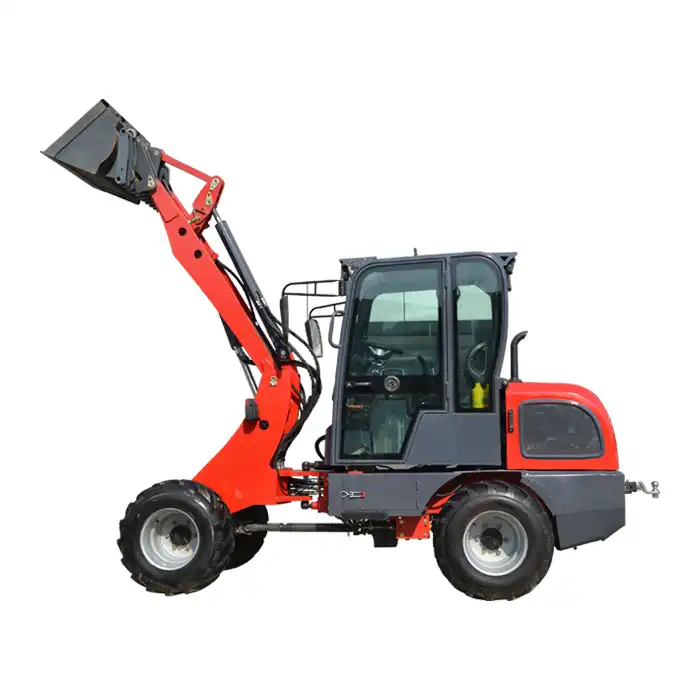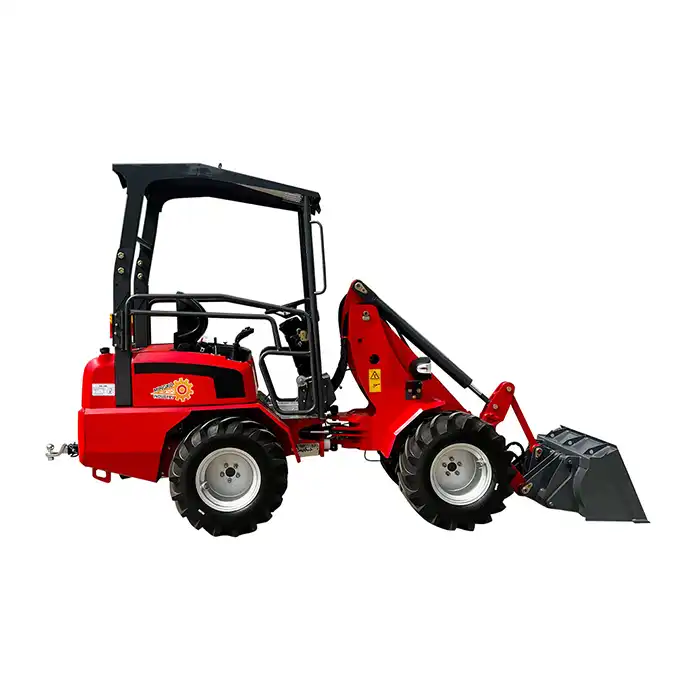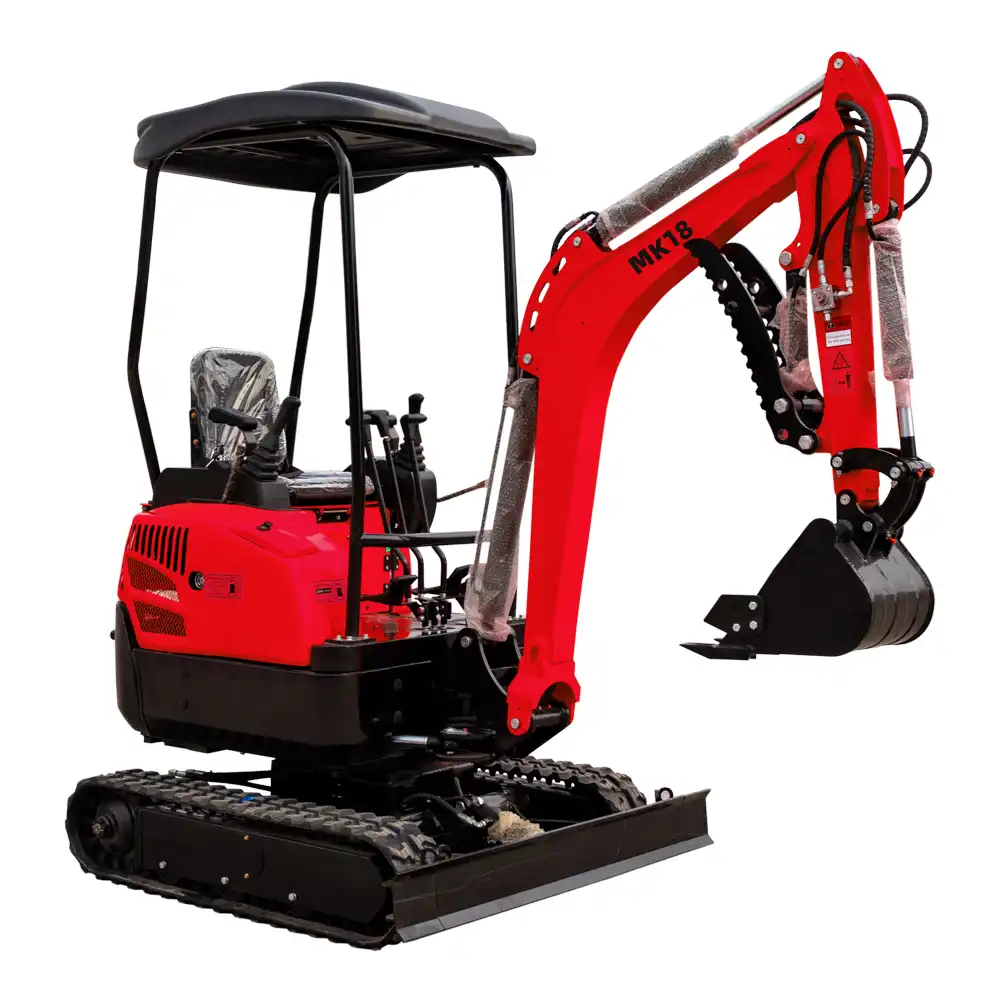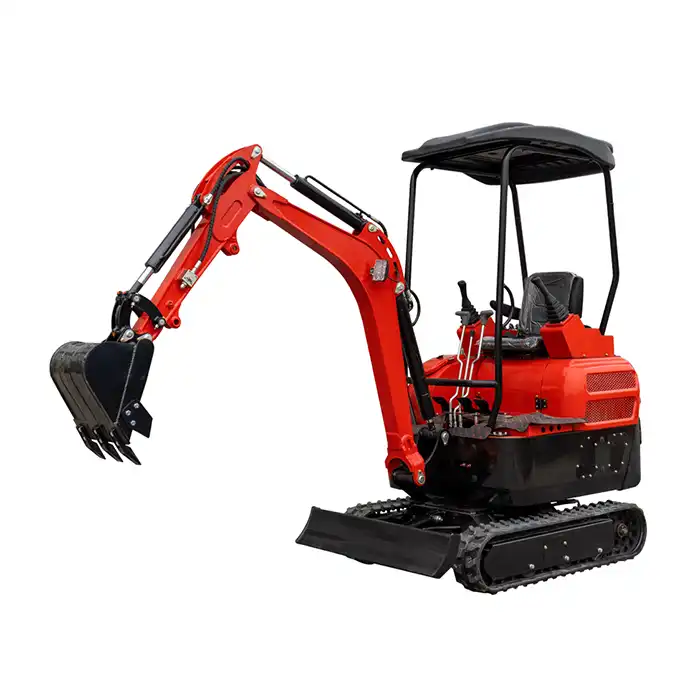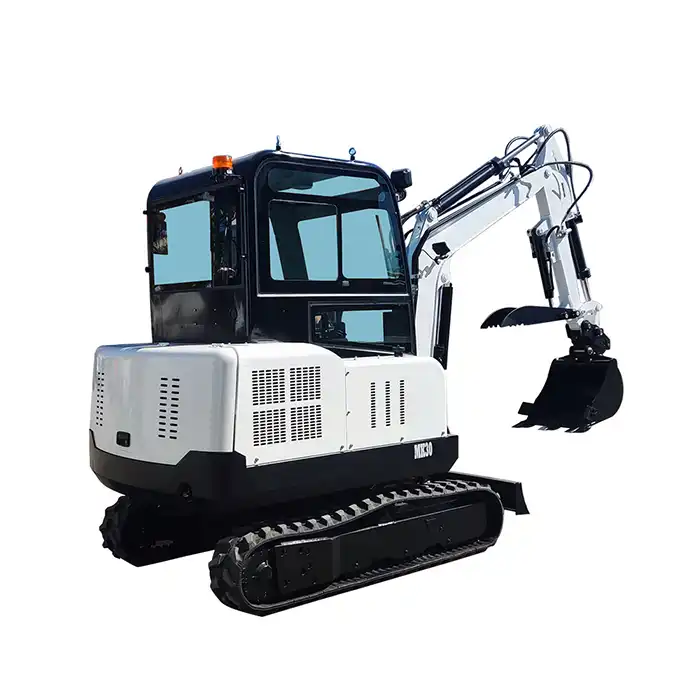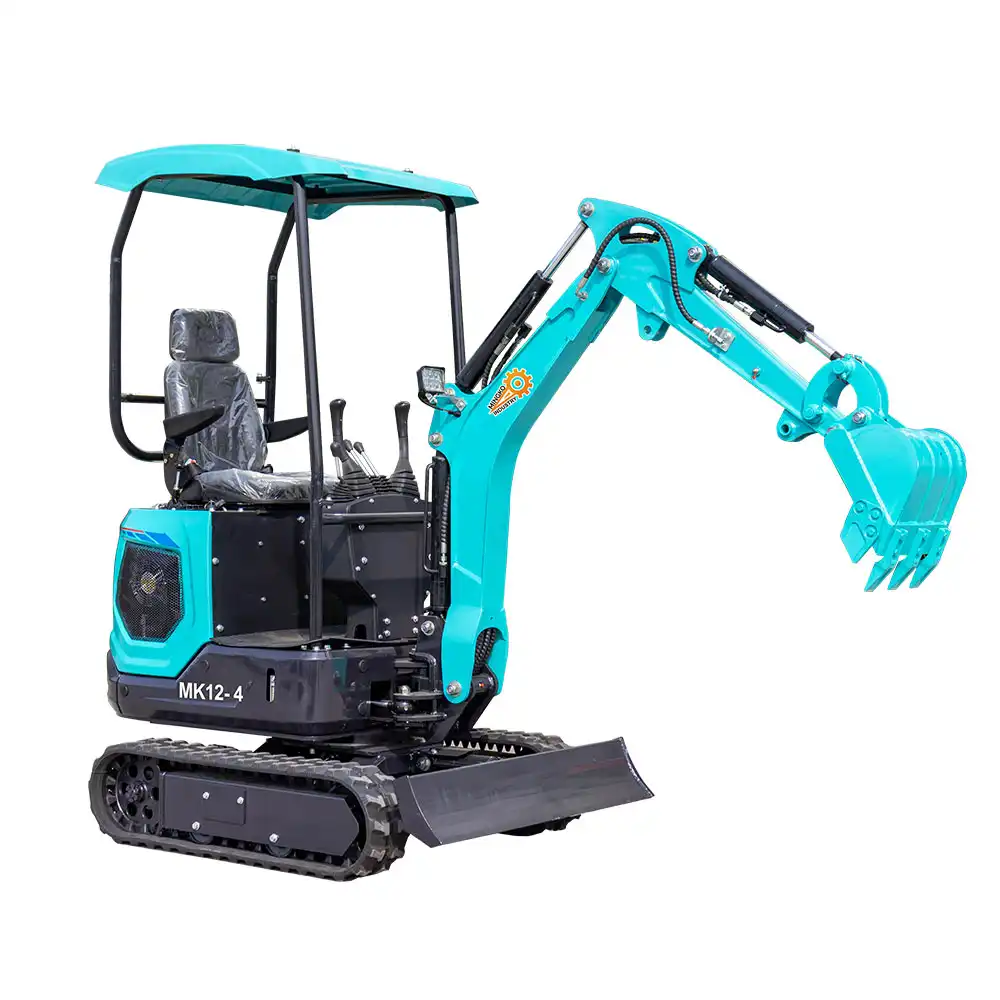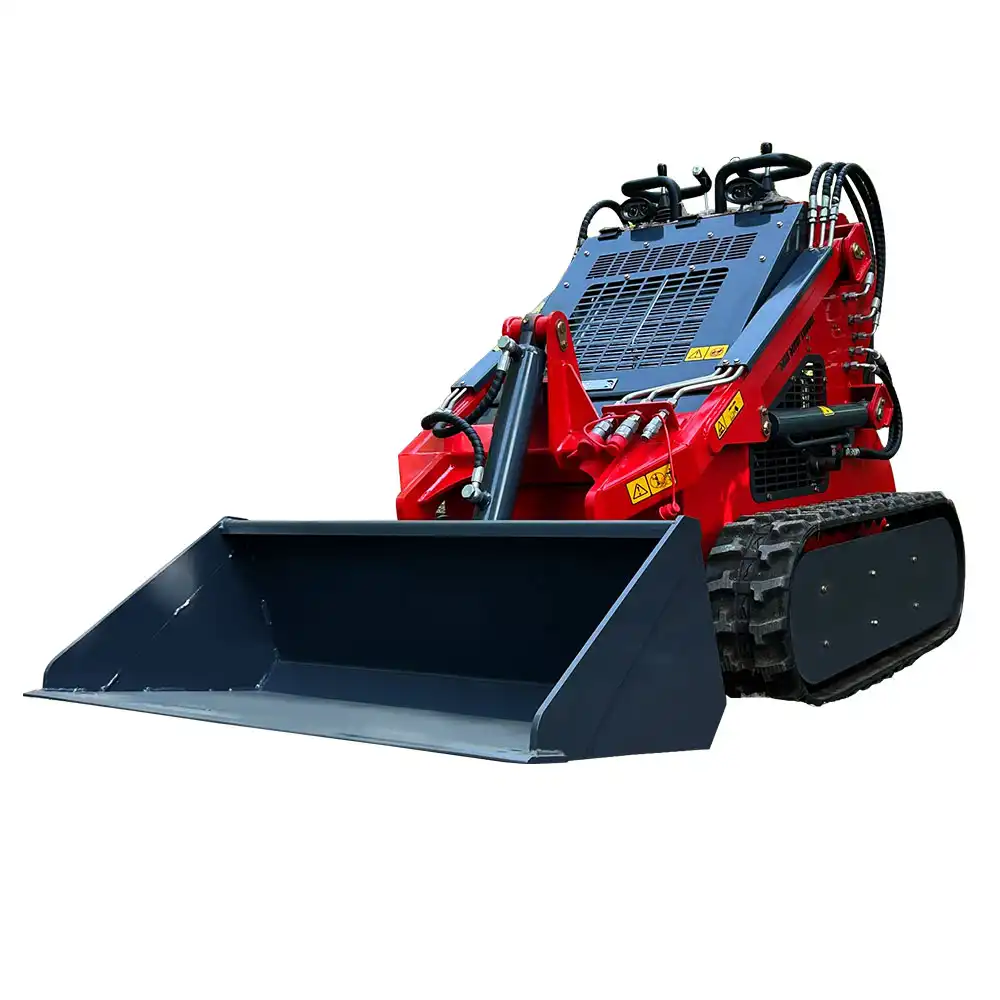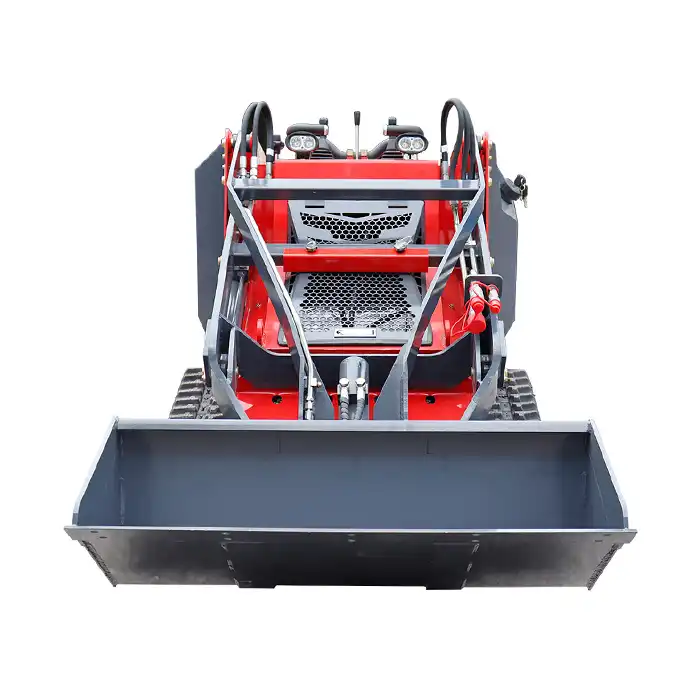When choosing between a 30 ton excavator and a Mini Small Excavator for residential construction, understanding the key differences can significantly impact project efficiency and costs. The 30 Ton vs Mini Small Excavator debate centers on factors like power output, maneuverability, and site adaptability. Mini small excavators excel in tight spaces with lower operational costs, while 30 ton excavators offer superior digging depth and load capacity for larger tasks. Selecting the right machine depends heavily on your project scale and site requirements.
Performance and Power: Comparing Digging Efficiency and Load Capacity
The 30 ton excavator stands out with its robust hydraulic system and higher power output, delivering superior digging efficiency and enabling it to handle larger volumes of earthmoving. Laboratory tests show that a 30 ton excavator can achieve excavation depths of up to 6 meters and a bucket capacity of approximately 1.5 cubic meters. In contrast, mini small excavators typically offer digging depths around 3 meters and bucket capacities near 0.3 cubic meters, which suits smaller-scale residential tasks. If you need higher load capacity and deeper excavation for sizable residential landscaping or foundation work, the 30 ton excavator is more suitable. Its strength truly shines on projects requiring heavy-duty earthmoving. Alternatively, if your site has spatial constraints and focuses on minor digs, the mini small excavator offers nimble performance with fuel-efficient operation.
Site Accessibility and Maneuverability: Navigating Residential Jobsite Constraints
Mini small excavators excel in maneuverability and site accessibility, thanks to their compact frames and lightweight design. Measuring roughly 1.5 meters in width, these machines fit into narrow spaces such as backyards or urban housing developments where larger equipment struggles to access. Additionally, their track systems exert lower ground pressure, minimizing disturbance to paved surfaces. In contrast, 30 ton excavators—with widths around 3 meters—may face difficulties on restricted residential sites, though they provide exceptional stability on uneven terrain. Tests indicate mini small excavators have up to 40% better turning radius, making them efficient for intricate tasks. If your project demands navigation through confined spaces or delicate surfaces, a mini small excavator is advantageous. But for open-area excavation with heavy load movement, 30 ton excavators better fulfill jobsite requirements. Both machines exhibit terrain adaptability, yet their practicality varies widely with project scale.
Operational Costs and Maintenance Needs: Fuel Efficiency and Lifecycle Considerations
Operational cost is key in equipment selection. Mini small excavators consume less fuel; their lightweight hydraulics and engines deliver superior fuel efficiency, reducing daily expenditure on residential jobs. Maintenance needs are also generally lower, with accessible parts and straightforward servicing keeping downtime minimal. On the other hand, 30 ton excavators involve higher fuel consumption and complex maintenance routines due to more sophisticated heavy machinery components. While their durability is exceptional, budget planning must consider increased operational and upkeep costs. If your priority is minimizing operational expenditure on small to medium-sized projects, the mini small excavator is more viable. For large-scale, long-term projects demanding powerful outputs, investing in a 30 ton excavator offers cost-efficiency through productivity gains despite higher running costs.
Operator Comfort and Versatility: Enhancing Productivity on Residential Sites
Operator comfort directly influences productivity. Mini small excavators feature ergonomic cab designs with ample visibility and simple control layouts that reduce operator fatigue in prolonged tasks. Their machine versatility includes compatibility with numerous attachment options—such as augers, breakers, and thumbs—allowing customization for diverse residential applications. Large 30 ton excavators also offer advanced operator cabins but might be overengineered for small projects. However, their attachment range is extensive, and their power facilitates quicker task completion across various earthmoving jobs. Those focusing on frequent diverse residential tasks requiring operator ease should consider mini small excavators. Where tough, varied excavation demands exist, 30 ton excavators provide robust versatility and operator amenities fit for intensive usage.
Pros and Cons Summary Table: 30 Ton vs Mini Small Excavator
| Feature | 30 Ton Excavator | Mini Small Excavator |
|---|---|---|
| Digging Depth | Up to 6 meters | Up to 3 meters |
| Bucket Capacity | ~1.5 cubic meters | ~0.3 cubic meters |
| Maneuverability | Limited in tight spaces | Excellent, narrow access |
| Fuel Efficiency | Lower, higher consumption | Higher, fuel-saving design |
| Maintenance Complexity | High, specialized servicing | Lower, easy access parts |
| Operational Cost | Higher | Lower |
| Attachment Versatility | Extensive options | Good variety suitable for residential work |
| Site Accessibility | Limited on tight residential jobsites | Highly suitable for confined spaces |
Why Choose Shandong Mingko Industry Corporation for Your 30 Ton vs Mini Small Excavator Needs?
Choosing Shandong Mingko Industry Corporation means partnering with a globally trusted manufacturer that prioritizes quality, innovation, and customer satisfaction. With over 15 years of experience in design and manufacturing, our products embody durability and advanced hydraulic systems tailored to diverse residential construction scenarios. Factory direct sales guarantee competitive pricing without middlemen, enabling clients to maximize value. We support customization starting from MOQ of just one unit to ensure machines perfectly align with your unique jobsite requirements, be it a powerful 30 ton excavator or a versatile mini small excavator. Our adherence to ISO 9001 standards and status as a National High-Tech Certified Enterprise underscore our commitment to excellence and technological progress. Comprehensive after-sales support includes a 12-month warranty and lifetime technical assistance. Our professional sales and service team is available around the clock; Contact Us at sales@mingkomach.com to inquire about our 30 Ton vs Mini Small Excavator product line. Trust Shandong Mingko Industry Corporation as your go-to 30 Ton vs Mini Small Excavator manufacturer and supplier for sale – your gateway to optimized excavation solutions worldwide.
Conclusion
The choice between a 30 ton excavator and a mini small excavator for residential construction depends on project scope, site accessibility, operational budgets, and specific task requirements. Understanding the performance, maneuverability, and cost implications helps ensure efficient machine deployment. Shandong Mingko Industry Corporation provides quality equipment tailored to diverse needs, empowering contractors and developers alike with reliable construction solutions.
References
1. Association of Equipment Manufacturers. Construction Equipment Trends and Performance Report, 2023 Edition.
2. Industry Insights on Compact Excavator Efficiency, Journal of Earthmoving Machinery, 2022.
3. Comparative Analysis of Hydraulic Systems in Heavy Machinery, Mechanical Engineering Review, 2021.
4. Residential Construction Equipment Best Practices, National Home Builders Association White Paper, 2023.
5. Fuel Efficiency Improvements in Compact Excavators, Sustainable Construction Technology Conference Proceedings, 2022.
6. Maintenance Strategies for Excavators in Residential Applications, Heavy Equipment Maintenance Journal, 2023.


